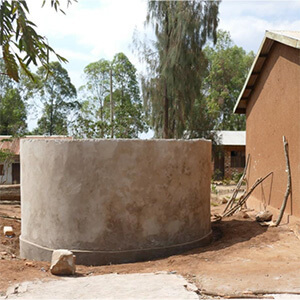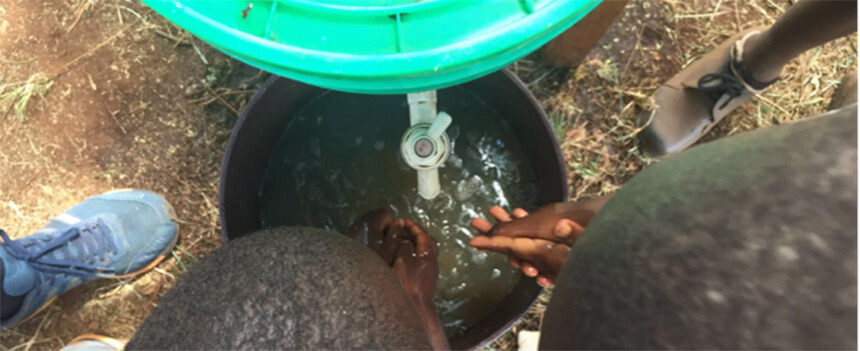 150 clean hands for 75 healthy children
150 clean hands for 75 healthy children
Water shortage and diseases in schools in Tanzania
What can I wash my hands with and why is that even important? This question occurs to 14-year-old Asina from Bukoba, Tanzania and 8.2 million other pupils on a daily basis. It is usually impossible for her to wash her hands because her school does not have running water. Water cannot be taken for granted because of frequent shortages. Also, many are not aware of the importance of washing hands to prevent diseases. In Germany we use 120 litres of water per day per person. With this amount of water, 600 children in Tanzania could wash their hands once a day. The lack of running water has a detrimental effect on the children's education: suffering from illnesses like diarrhoea causes them to miss classes. Many girls also avoid going to school while they have their period.
Necessity
Water supply and hygiene education for primary school pupils in Tanzania.
Activity
Rain water cisterns and hand washing facilities are installed at primary schools. Games teachers are given hygiene training to help with implementation at schools.
Countable effort
8 water cisterns and hand washing facilities for 8 primary schools to be used by 4.000 pupils daily.
Result
Absence due to sickness of 4.000 pupils is reduced by 47 % and the graduation rate goes up.
Systemic effect
Higher level of education in the region and better awareness of hygiene for pupils, their families and communities.
Background
Illnesses as a result of insufficient hygiene are a major problem in Tanzania. About one third of all deaths of children under 5 are caused by a lack of hygiene (UNICEF, 2015). Many children suffer from diarrhoeal diseases or infection with worms, and last year, Tanzania has seen increasing numbers of cases of cholera (UNHCR, 2015). As a result, children miss school or are unable to concentrate properly. This causes their grades to deteriorate and the dropout rate increases. And yet washing hands with soap can reduce the spread of diseases and germs by 47 % (UNICEF, 2015).
The reasons for the lack of hygiene are many: at the national level alone, four ministries are involved in the issue of water, sanitation and hygiene (WASH) in schools. This results in inefficient and long implementation processes. Further, the financial resources for providing all schools with water, hand washing facilities and adequate toilets are not available (WaterAid, 2013). This results in a shocking statistic: 86 % of all schools in Tanzania have no running water (UNICEF/WaterAid/SNV 2010).
The good deed
Jambo Bukoba makes it possible for Asina and other children in Tanzania to stay healthy and go to school on a regular basis. Rain water cisterns bring water to the schools, the pupils are informed on hygiene and hand washing facilities are installed. Teachers learn playful ways of getting the children in the habit of washing their hands with soap. And this knowledge is then taken back to their families and communities.
Challenge
Many teachers also do not take washing hands with soap for granted. So the first obstacle is making them familiar with the basics of hygiene education and teaching them playful ways of making it routine for the children. Another challenge is maintaining the cisterns and hand washing facilities. This requires long-term funding.

AboutTanzania
Dodoma (Seat of government: Dar es Salaam)
Capital
53 470 400
Number of inhabitants
957 USD
Gross domestic product per capita per year
151
Human Development Index
At 5.894 metres, Mount Kilimanjaro is the highest mountain in Africa. In 1987, the massif was declared a world heritage site by the UNESCO and has been a popular challenge for tourists ever since.
About the organization and further information
Association
Jambo Bukoba e.V.
Website
Transparency International Commitment to standards of German Charity Council e.V. Commitment to quality standards of VENRO




